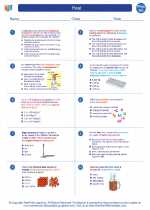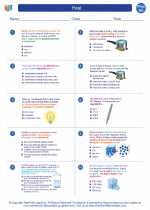Fossilization: Understanding the Process
Fossilization is the process by which the remains or traces of organisms from the past are preserved in the Earth's crust. It provides valuable insights into the history of life on Earth and helps scientists understand the evolution of various species.
Key Concepts
- Fossil Formation: Fossils are formed through a series of processes that include burial, decay, and mineralization. When an organism dies, its remains are often buried by sediment. Over time, the organic materials in the remains decay and are replaced by minerals, resulting in the formation of a fossil.
- Types of Fossils: Fossils can take various forms, including petrified fossils, molds and casts, carbon films, and trace fossils (such as footprints or burrows).
- Fossil Record: The fossil record provides a chronological collection of life's remains, allowing scientists to study the history of life on Earth and make inferences about past environments and ecosystems.
- Paleontology: The field of paleontology focuses on the study of fossils to understand the history of life, the relationships between different organisms, and the processes that have shaped the Earth over time.
Study Guide
To gain a deeper understanding of fossilization, consider exploring the following topics:
- Geological Processes: Learn about the geological processes that contribute to the formation and preservation of fossils, such as sedimentation, tectonic activity, and erosion.
- Fossil Identification: Familiarize yourself with the characteristics of different types of fossils and the methods used to identify and classify them.
- Evolutionary Patterns: Study the patterns of evolution and extinction revealed by the fossil record, and analyze how changes in the Earth's environment have influenced the diversity of life forms.
- Field Work: Explore the techniques and practices used by paleontologists during field work, including excavation, documentation, and specimen collection.
- Modern Applications: Investigate how the study of fossils contributes to our understanding of current environmental and biological issues, such as climate change and species conservation.
By delving into these areas of study, you can develop a comprehensive understanding of fossilization and its significance in the scientific exploration of Earth's history.
Remember to apply critical thinking and observation skills as you engage with the subject matter, and don't hesitate to seek out resources such as scientific journals, museum exhibits, and academic courses to further enrich your knowledge of fossilization.



